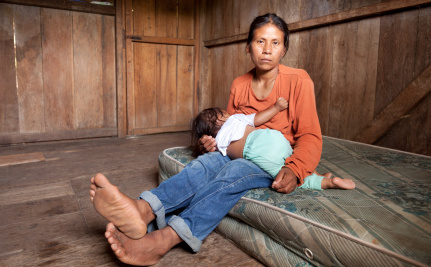The current Ecuadorian law forbids women and girls to have abortions, and those that do have abortions could be imprisoned for one to five years. Imprisonment could place females in higher risk of maternal mortality and injury. The only exceptions to this ban are:
- A threat to the life and/or health of a pregnant woman, when the danger cannot be averted by other mean or
- When the pregnancy is the result of a rape or statutory rape of a woman who is classified as an “idiot or demented.” In other instances of rape, women or girls are forbidden to seek an abortion.
In August 2013 Human Rights Watch (HRW) published a report, “Rape Victims as Criminals: Illegal Abortion after Rape in Ecuador.” By interviewing women and girls, medical professionals, and women’s rights experts, HRW concluded that criminal penalties for abortions in Ecuador’s current legal system force women and girls to have illegal and unsafe abortions, and the system also fails to report some instances of sexual violence. Medical professionals who were interviewed described cases in which young women seeking abortions as a result of rape, some as young as 12, were turned away because they could not be classified as “idiots or demented,” nor was the pregnancy a threat to their health or life.
[captionpix align=”left” theme=”elegant” width=”250″ imgsrc=”http://natoassociation.ca/wp-content/uploads/2013/11/Ecuador.jpg” captiontext=”Ecuador president would rather resign than allow abortion”]
Last month, Ecuador’s National Assembly began debating a draft criminal code reform. The 2013 criminal code reform bill differs from the early 2012 draft code in that the earlier draft contained language that would exempt females who obtained abortions for pregnancies resulting from rape, and in addition would ensure that victims have access to comprehensive post-rape medical care. However, this year’s reform failed because Ecuador’s current president, Rafael Correa, vowed to veto any changes that would ease the current laws on abortion.
Ecuador has high rates of violence against women, including sexual violence. In 2011 a nationwide government survey found that 60 percent of Ecuadorian women had experienced some type of gender-based violence during their lifetime. Moreover, the report estimated that one in every four Ecuadorian women has been a victim of sexual violence. About 53 percent of the women said the perpetrator was their partner or ex-partner. With such high rates of violence and endangered health from illegal abortions, it is difficult to comprehend why Ecuador continues to treat rape victims as criminals.




